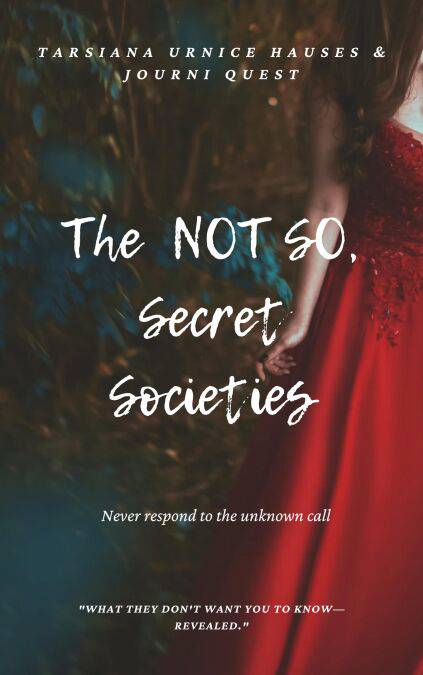
- Retrait gratuit dans votre magasin Club
- 7.000.000 titres dans notre catalogue
- Payer en toute sécurité
- Toujours un magasin près de chez vous
- Retrait gratuit dans votre magasin Club
- 7.000.0000 titres dans notre catalogue
- Payer en toute sécurité
- Toujours un magasin près de chez vous
Description
Book Description: The Not So Secret Societies
Title: The Not So Secret Societies
Authors: Tarsiana Urnice Hauses and Journi Quest
The Not So Secret Societies by Tarsiana Urnice Hauses and Journi Quest offers a profound exploration into the enigmatic world of secret societies, unmasking their historical roots, intricate rituals, and global influence. This compelling book provides an in-depth analysis of how these organizations operate behind closed doors and their impact on our modern world.
Starting with the origins of secret societies, the authors trace their development from ancient times to their contemporary counterparts. The book meticulously examines how these groups emerged from historical traditions, shedding light on the reasons for their secrecy and how it shapes their identity and operations.
A significant portion of the book is dedicated to understanding the purpose of secrecy in these societies. The authors explore the dual role of secrecy as both a protective measure and a tool for influence, revealing how it affects both the society and its members. They delve into the complex rituals and symbolism that define these organizations, decoding the meaning behind various ceremonies and practices.
The initiation processes within secret societies are another focal point, with the authors analyzing the symbolism and psychological impact of these rites of passage. They discuss how initiation solidifies members' commitment and indoctrinates them into the group's values.
The book also delves into the oaths of secrecy taken by members, exploring their significance, the power they wield, and the consequences for those who break them. Tarsiana Urnice Hauses and Journi Quest examine the psychological effects of secrecy on members, including how it influences their behavior and mental health.
A critical aspect of the book is its examination of the connection between secret societies and royal lineages. The authors explore how historical and contemporary royal families are intertwined with these organizations, analyzing the impact of these connections on global politics and society.
The influence of secret societies on politics, global governance, and financial systems is thoroughly explored. The authors investigate how these organizations shape political landscapes, control economic systems, and influence international relations. They also examine how secret societies contribute to global challenges such as resource management and environmental policies.
The Not So Secret Societies addresses the more insidious aspects of these organizations, including their role in mind control, psychological manipulation, and public perception. The authors discuss how secret societies use psychological tactics and propaganda to influence individuals and societal norms.
The book also explores the connection between secret societies and conspiracy theories, providing insight into how these theories emerge and what they reveal about our perceptions of power and secrecy. The authors analyze the control of information and its impact on public opinion and societal narratives.
In its final chapters, the book looks to the future, examining how secret societies are involved in the development of new technologies, such as artificial intelligence and genetic engineering. The authors investigate the intersection of secret societies with transhumanism and their role in addressing global challenges like climate change and pandemics.
The Not So Secret Societies concludes with a call for vigilance and ethical integrity. It serves as both an exploration of hidden forces and a guide for navigating the complex landscape of power and secrecy. This book provides a deep and nuanced understanding of the impact and influence of secret societies on our world today.
Spécifications
Parties prenantes
- Auteur(s) :
- Editeur:
Contenu
- Langue:
- Anglais
- Collection :
Caractéristiques
- EAN:
- 9798227348968
- Date de parution :
- 17-08-24
- Format:
- Ebook
- Protection digitale:
- /
- Format numérique:
- ePub

Les avis
Nous publions uniquement les avis qui respectent les conditions requises. Consultez nos conditions pour les avis.






